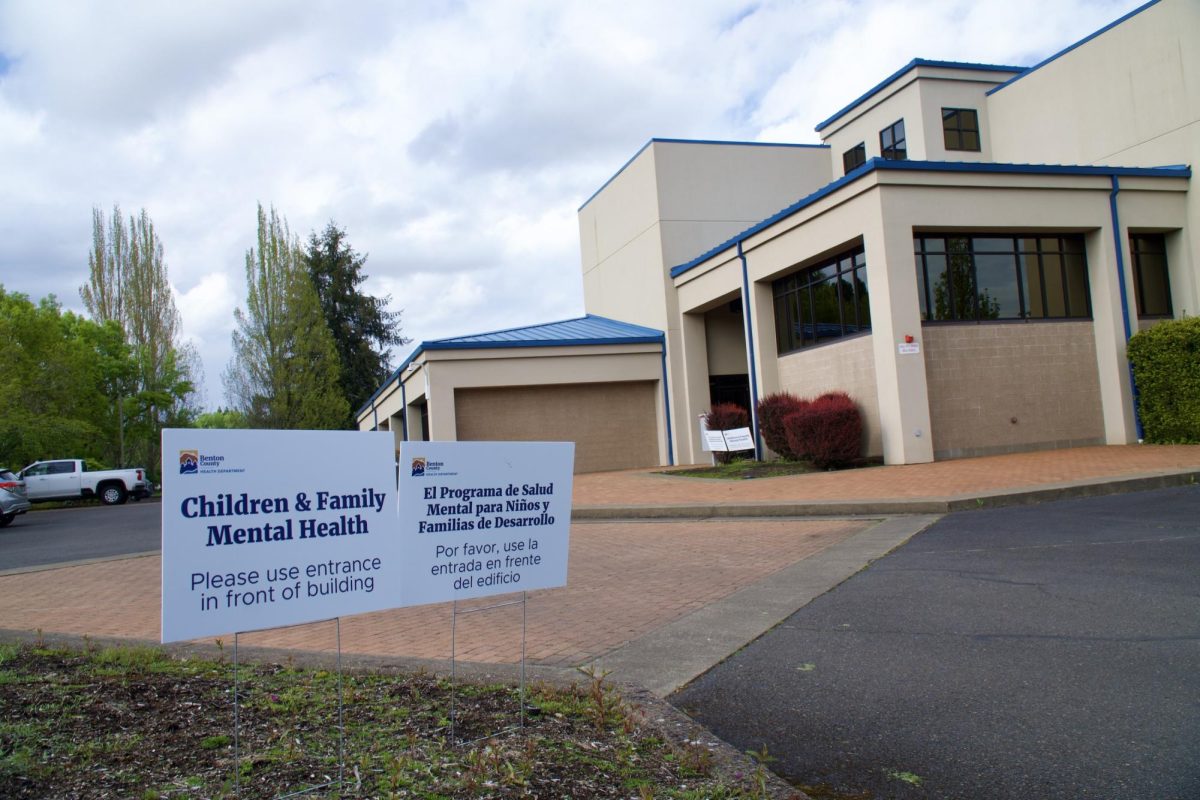Content warning: this article contains mentions of addiction, treatment and drugs.
Addiction affects millions of people in the United States every year––46.8 million Americans struggled with a substance abuse disorder in 2022 alone, according to American Addiction Centers, but there are resources available.
Ricky Garcia, a behavioral health administrative manager at Benton County Behavioral Health, said addiction is a known brain disorder, considered a chronic condition and can be impacted by environmental and genetic factors.
“People suffering from substance use disorders have trouble controlling their use even though they know using is harmful,” Garcia said. “(Those struggling with addiction) are not bad people trying to do harm––they are sick people trying to get well. It’s important to recognize that mental health care is a basic human need.”
Garcia said rather than stigmatizing and blaming the individuals involved, approaching addiction with the understanding that it is an illness helps to emphasize the importance of compassion and evidence-based treatment, and though recovery may be challenging and may require medication and therapy to help with withdrawal and cravings, it is possible.
Garcia added that early intervention resources are also available, where people can find counseling and assessments as well as referrals to other providers. He said people look for addiction resources in a variety of ways depending on individual needs, preferences and location.
The goal of early intervention is to get help before substance use gets to the point of being too hard to control and can be part of keeping substance misuse from becoming a substance use disorder, according to WedMD.
Common risk factors for students may include academic stress, binge-drinking culture, peer pressure and access to substances, Garcia said, though addiction varies with demographic and socioeconomic factors among students.
“Addiction is recognized as a brain disorder characterized by compulsive engagement in rewarding stimuli despite adverse consequences,” Garcia said.
According to The Mayo Clinic, symptoms and behaviors of drug addiction include feeling the need to use a drug regularly, experiencing intense urges for the drug, needing progressively higher doses for the desired effect, overspending on drugs, drug use affecting your ability to meet responsibilities, unusual and problematic behaviors like stealing, driving and other dangerous activities while under the influence, failing to stop using the drug and more.
OSU students can seek support through the university’s Counseling and Psychological Services.
CAPS offers a variety of resources including crisis care, single session clinics and support groups and more. Though CAPS only offers short-term counseling, they work with ThrivingCampus to help students find long-term care.
CAPS also offers the Anytime Anywhere program, which offers all three of OSU’s campuses free wellness and mental health counseling anytime, anywhere in the world in English, Arabic, Chinese, French, Korean and Spanish. Students can ask to be matched with a counselor that shares identity factors with them like ethnicity, sexual orientation and gender identity, among other things.
It’s possible to form addictions to a variety of different substances, even drugs often considered non-addictive, like marijuana. Approximately 30% of marijuana users may experience marijuana use disorder, according to the National Institute on Drug Abuse.
Other kinds of drugs include synthetic drugs like bath salts and K2; Barbiturates, benzodiazepines and hypnotics; stimulants, including meth, cocaine and Adderall; “Club drugs” like ecstasy and Rohipnal (roofies); Hallucinogens like LSD; Inhalants like gasoline and paint thinner; and opioids like codeine and morphine.
According to Garcia, some of the addiction resources in Benton County include:
- Benton County Behavioral Health
- Substance Use Treatment
- Medication Assisted Treatment
- Mental Health Therapy
- 530 NW 27th Street, Corvallis, OR 97330
- 541-766-6767
- Ideal Option
- Medication Assisted Treatment
- 1318 NW 9th Street, Suite B, Corvallis, OR 97330
- 1-877-522-1275
- ACME
- Substance Use Disorder Treatment
- 310 NW 5th Street #101, Corvallis, OR 97330
- 541-286-4010
- Milestones
- Substance Use Disorder Treatment
- 442 NW 4th Street, Corvallis, OR 97330
- 541-757-7534
- Discovery Counseling
- Substance Use Disorder Treatment
- 877 NW Grant Avenue, Corvallis, OR 97330
- 541-752-2703
- Community Outreach, Inc. (COI)
- Substance Use Disorder Treatment
- 865 NW Reiman Avenue, Corvallis, OR 97330
- 541-758-3000

















































































































